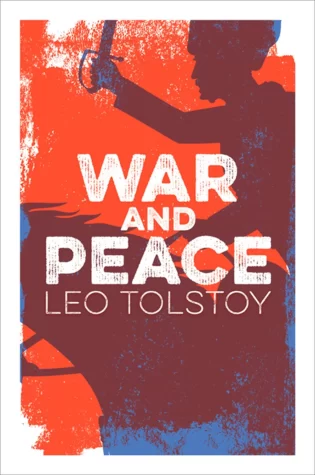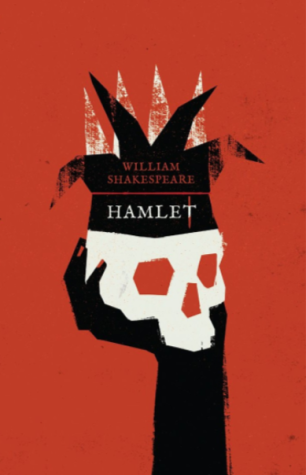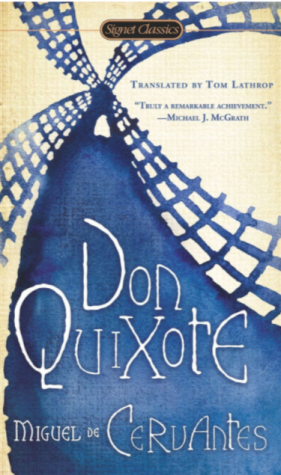East Literature Club makes book recommendations for March
About East Literature Club
East Literature Club is a book club at Cherry Hill East dedicated to people who love reading. Bookmark our website here and follow us on Instagram @east.literature.club for the latest book recommendations by students and teachers from our school. Here are three book recommendations for March.
War and Peace by Leo Tolstoy – Review by Eric Li

War and Peace tells the story of Napoleon’s invasion of Russia in 1812. Written between the years 1863 and 1869, it has since won the reputation as a masterpiece of world literature. But its author, Tolstoy, famously stated that “it is not a novel, even less is it a poem, and still less an historical chronicle.”
Why, then, did Tolstoy refuse to characterize War and Peace as a novel? The answer lies in the fact that through writing War and Peace, Tolstoy disregarded all literary convention. Unlike most novels, Tolstoy’s War and Peace does not have a single protagonist and includes a 50-page philosophical dissertation about the causes of historical events (written by Tolstoy himself). While War and Peace does not have a single protagonist, it does trace the development of three main characters: Pierre Bezukhov, Andrei Bolkonsky, and Natasha Rostova.
Tolstoy opens the War and Peace in the year 1805 with an evening soiree hosted by Anna Pavlovna Scherer, a woman from high society. The first guest who arrives is Prince Vasili Kuragin, a man of high rank. At this time period, almost all people in Europe dread Napoleon Bonaparte—believed to be invincible—so Anna Pavlovna questions Vasili about the impending war between France (led by Napoleon) and Austria, where Russia will fight alongside the Austrians. Later, among the new guests who arrive are two young men: Pierre Bezukhov and Andrei Bolkonsky. The illegitimate son of the wealthy Count Bezukhov, Pierre, although kind and intelligent, is a societal outcast. Andrei, Pierre’s best friend, will fight in the imminent war against Napoleon. Amid a conversation between the guests about the coming war with Napoleon, Pierre supports Napoleon, to everyone’s horror. Pierre and a few other guests then enter into a heated argument, and Andrei tries to help Pierre by toning down his remarks. Soon, the soiree ends.
After the soiree ends, Tolstoy introduces the Rostovs, a family celebrating the name-day (name-days are similar to birthdays in Russia) of the mother and the youngest daughter, both named Natalya. The youngest daughter, Natalya Ilyinichna Rostova (Natasha), charms everyone she meets with her bold spirit and enchanting personality. She possesses the priceless ability to enjoy life to its fullest.
Once Tolstoy has introduced his main cast of characters, he traces their maturity during the years 1805 to 1812. Pierre embarks on a search for life’s meaning after he becomes disillusioned with his beautiful but vapid first wife, Helene Kuragina. Andrei fights in the Battle of Austerlitz and in the famous Battle of Borodino. Natasha develops into an attractive young woman. When Napoleon invades Russia in 1812, all three will encounter their misfortunes and grow from their experiences.
In War and Peace, Tolstoy combines profound themes–the meaning of life, the value of suffering, the joy of divine love–with unforgettable depictions of 19th-Century Russia to craft a marvelous and universal portrait of life. Readers will appreciate Tolstoy’s extraordinarily realistic depictions of warfare, as well as his exceptional ability of describing the everyday joys we experience, qualities that have since propelled both Tolstoy and War and Peace into the literary canon.
Hamlet by William Shakespeare – Review by Danielle Janicki

William Shakespeare’s most notable tragedy, Hamlet, portrays the story of Prince Hamlet seeking vengeance against his uncle, King Claudius, who killed Hamlet’s father to marry his mother and seize the throne of Denmark. For Hamlet to execute his revenge, he fakes madness to those around him creating a chaotic environment to set the tragic ending. The themes of action vs. inaction and the ambiguity of Hamlet’s character make this classic drama such a mysterious masterpiece. The play leaves the reader with so many unanswered questions. Why didn’t Hamlet kill Claudius sooner? Was Hamlet’s madness genuine or truly fake? What was Hamlet like before his father’s death? We will never know as these questions are certainly up to the reader to interpret.
One of the driving forces of the drama is Hamlet’s indecision. His indecision is apparent when listening to the ghost’s requests (supposedly King Hamlet), contemplating suicide, and murdering Claudius. Hamlet’s inability to make decisions stems from his lack of confidence. He admits that he cannot avenge his father’s murder simply because of his cowardice. Eventually, he changes his mind and decides to carry out the murder through elaborate planning. However, the play establishes a boundary between claiming to act and actually doing so. Hamlet constantly says he will kill Claudius, but fails to act on it, to which he drags this problem to the play’s conclusion. Hamlet’s indecisiveness results in his ultimate downfall while successfully completing his vengeance.
Hamlet remains one of the most ambiguous and enigmatic characters in literature. The complexity of his character does not fit the standards of a conventional protagonist because of his brooding nature. The play only explores his personality when he grieves his father’s death and fakes madness, so this puts Hamlet’s true personality into question. The Hamlet that the reader sees is a person going through a crisis and simply acting on it. Could we dismiss his behavior throughout the play as his true character? Possibly. Shakespeare introduces Hamlet as timid and emotional, but this was after the recent death of his father, so he has a reason to act this way. He also fakes madness to deceive the characters from his ulterior motive: plotting revenge. The first victim of his madness is his love interest: Ophelia. Both characters love each other, but Hamlet’s madness weakens their relationship as he treats Ophelia inhumanely. Because of Hamlet’s madness, Ophelia feels betrayed leading her to commit suicide.
Aside from his madness, there are few occurrences in the drama talking about Hamlet positively, but we rarely see that. Shakespeare incorporates one event that could possibly act as Hamlet’s true character moment. When Hamlet finds out about the death of court jester Yorick, he remembers positive memories with him during his childhood. While this scene evokes nostalgia and happiness, Hamlet realizes that good people die even though they don’t deserve to. This is the first and only time we see Hamlet demonstrating sympathy towards another person. Overall, we will never know if Hamlet’s personality was genuine or a person experiencing an existential crisis.
While Hamlet leaves us with so many unanswered questions, the play raises the biggest question of them all: is revenge justifiable? Want to know the answer? Find out in Shakespeare’s most influential tragedy: Hamlet.
Don Quixote by Miguel de Cervantes – Review by Mr. Blum

Don Quixote raises a powerful, if not somewhat absurd, question: “Aren’t we all just all just idiots in search of a laugh?”
Cervantes tells the story of Don Quixote who is so enraptured by stories of knights and chivalry that he comes to perceive of himself as a knight-errant who must go on adventures, claim a damsel to protect and honor, solve injustices, and uphold the strict and honorable code of chivalry that keeps the world in order.
However, Don Quixote is no knight-errant. He’s an aging, once-wealthy but now-impoverished Spanish noble who has nothing but his library of books. Perhaps to compensate for his poverty and loneliness, he loses himself in books.
Concerned about what is deemed his unhealthy relationship with these stories, his housekeeper burns the whole library. Nevertheless, Don Quixote is undaunted. Manufacturing his own story, he conscripts a bumbling, gluttonous neighbor, Sancho Panza, to accompany him on adventures he concocts all on his own. The two leave town in search of quests, heroines to defend, rights to wrong, and lands to rule in the name of their honor.
Along the way, as Don Quixote’s grip on reality fails him, he fights with imaginary monsters, defends imaginary maidens, and protects imaginary magical artifacts: He fights windmills thinking they are giants. He mistakes a barber’s bucket for a famous king’s helmet. He becomes the butt of jokes and pranks as he scours the land desperately seeking to validate his knight-identity while all who come into contact with him bear the brunt of his growing lunacy.
Or, perhaps his growing clarity. For Don Quixote, as maniacally as he acts, also speaks with a fluent, eloquent, and judicious voice about honor, integrity, love, and all facets of human life that are decent and joyous and important. Readers can’t help but get swept up in his zeal as much as they get swept up in the mad-hatter humor that follows him wherever he goes.
That mix of madness and sanity provides the crux of the dramatic tension in the novel, a tension that speaks to the very reasons to read books at all. In that sense, Don Quixote builds a drama surrounding the entire process and engagement of reading, writing, and authorship. Don Quixote is perhaps crazy as a result of his relationship with literature. Literature, after all, is a collection of lies. How could anyone become so infatuated with lies?
Even further, what about authorship? Who wrote the novel? The credit goes to Miguel Cervantes, soldier, convict, escaped convict, re-captured convict, re-escaped convict, pirate, and agent of the Spanish government. He also wrote books and plays. However, the Cervantes of Don Quixote breaks the fourth wall and inserts himself into the storytelling to inform the reader that he is not the author. He says that the story of Don Quixote was written in Arabic by a man named Cid Hamete Benengeli. Cervantes came across the manuscript in a market and hired someone to translate it into Spanish; Cervantes is just the editor of the translation.
Why would Cervantes create such confusion over the authorship? Who tells stories? The author writes it down, but, as Don Quixote himself illustrates, we the readers are the real writers who make stories our own as we internalize any book we read. We read to amuse ourselves, to reinforce our lives, to escape from our worlds, to gain perspective, to broaden our horizons, to validate our fears, to live vicariously.
If Don Quixote is a crazy fool, then aren’t we all, too? Even if this question mocks us, does it need to? Does Don Quixote care if he is mocked? No. Does Don Quixote act crazily? Absolutely. He also acts with integrity and passion. Even if we are idiots in search of a laugh, Don Quixote reminds us how that search is important. Life is a laugh. Life is also a series of wonderful adventures that give us meaning and value and character. Yes, maybe we are idiots, but even idiots are permitted an occasional laugh.

